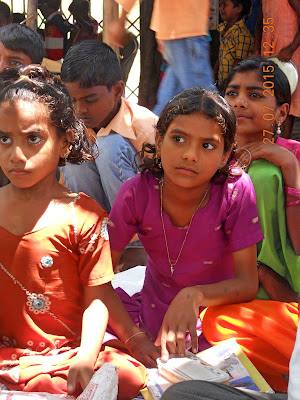Recently some of our secondary Govindpuri children informed us that they may have to stop coming. Why?
These were some of the brightest of the lot who attend government school. The reason they gave was shocking. Their school teacher had told them that unless they attend the tuition classes he gives, they would not pass in the subject. This of course costs 1000 Rs a month. The children are devastated and so are we. 1000 Rs multiplied by the large number of students in a state-run school classroom is good money.
And this too seems to be an accepted norm as we were told that in another government school 80% of the class failed a particular subject and were told that if they wanted to pass the supplementary examination at the end of the summer holiday the students HAD to attend the tuition the teacher would be giving during the holidays. The less said the better.
This shadow education is a true reflection of the social strata of India and hence it goes from über expensive teachers that come to über rich homes to expensive tuition given in the tutors’ home, to group tuitions in air conditioned swanky classrooms to spaces like Project Why. Every one has a commensurate price tag of course.
Children as young as 6 ‘go for tuition’ everyday, often to a local tutor. The price tag for such support is around 600 to 1000 Rs a month and if you have more than one child then it is often the boy who is sent and the girl kept back. As the child grows the tag becomes costlier as then you are charged per subject at a rate of 1000 or more Rs for 3 sessions a week.
What is worrying is that this ‘shadow’ system seems to be here to stay. The very basis on which it stands is faulty as it presumes that the hours spent in school are not sufficient if one wants to succeed. The hard day school hours are its cornerstone.
Education does not stop at academics but with this dual schooling there does not seem to be much time left for anything else. When does the child play, read books, meets friends or relax?All these are essential for wholesome growth.
One hopes that decision makers will look at this aspect when the next reforms are envisaged.

